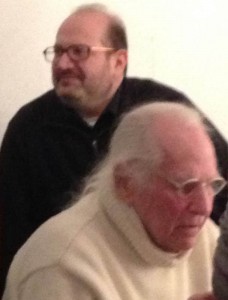
DG working on his new book at Brava Beach, Culebra. Beach attire includes $6 bathing suit purchased at Zeller’s in Simcoe, Ontario, circa 2003. Note snorkel gear, coconuts, palm frond lean-to. On this trip, dg was introduced to three major life-changing innovations: mojitos, snorkeling & mojitos.

Brava Beach
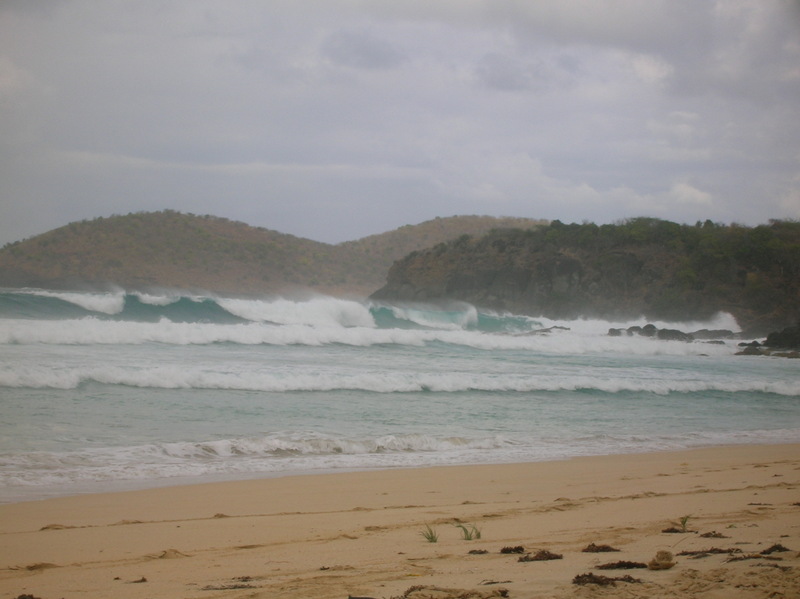
Brava Beach
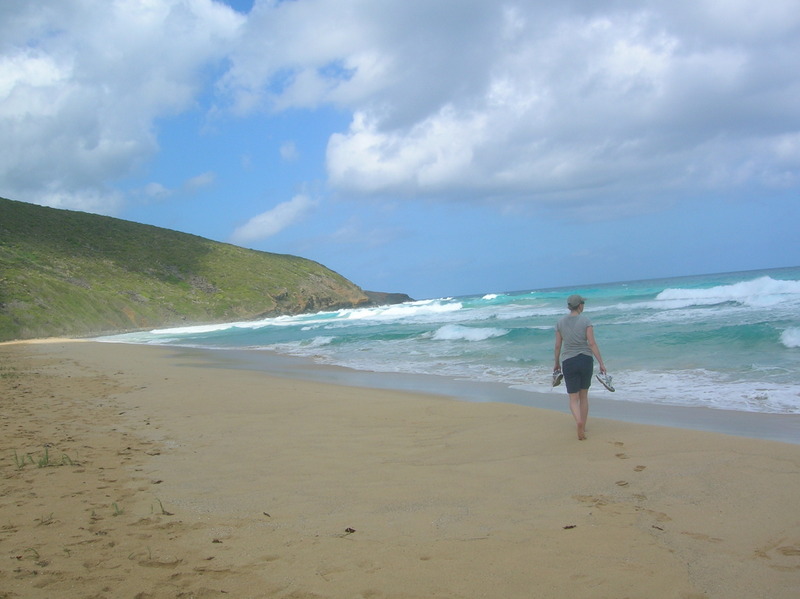
Resaca Beach

Susie’s Restaurant with outside bar at far left. Next to the bar is the driveway to a gas station behind the restaurant. Then the canal. The driveway is usually crowded with cars till 6pm. At 6pm the gas station closes and the bar opens.
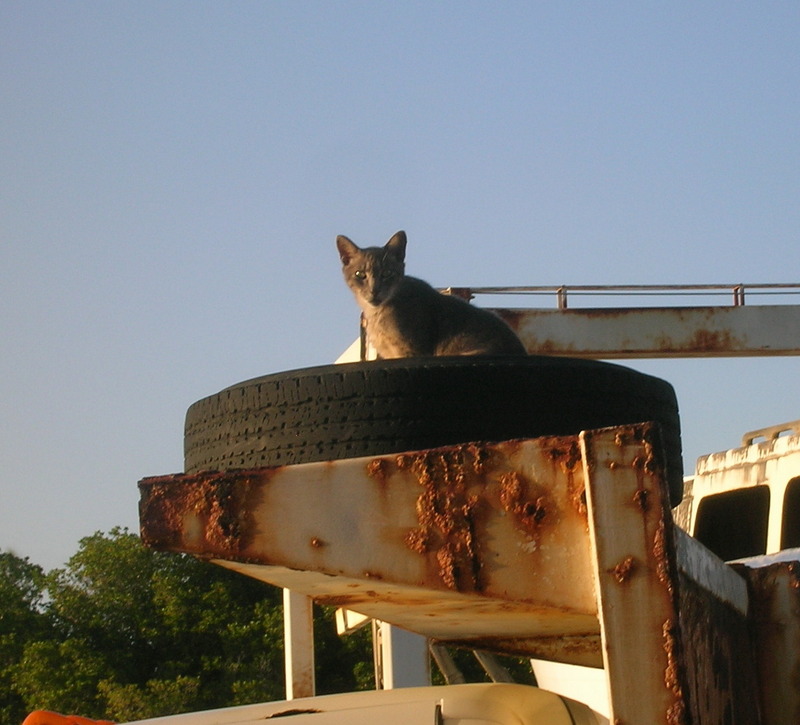
Feral cat, one of many that hang out in front of Susie’s Restaurant. There were cats everywhere, cats and feral chickens. Deep in the woods there were chickens.
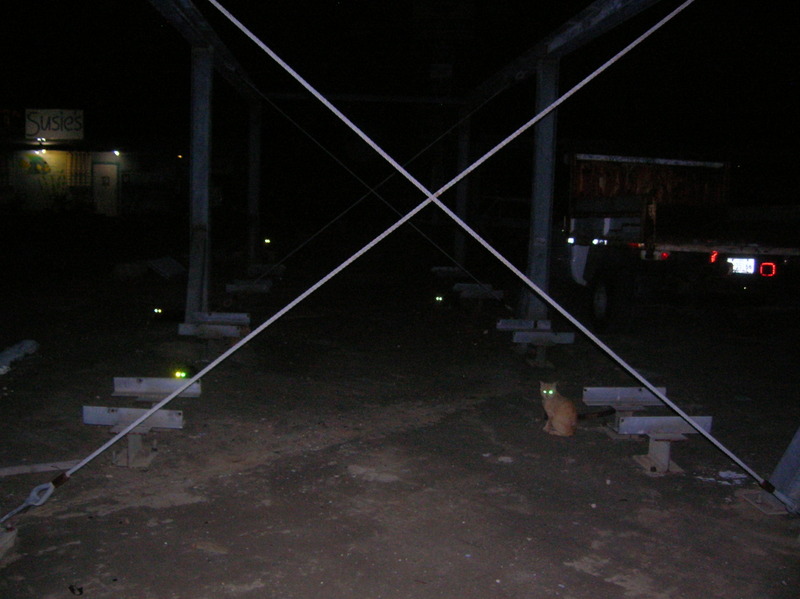
Five cats outside of Susie’s. See the eyes.
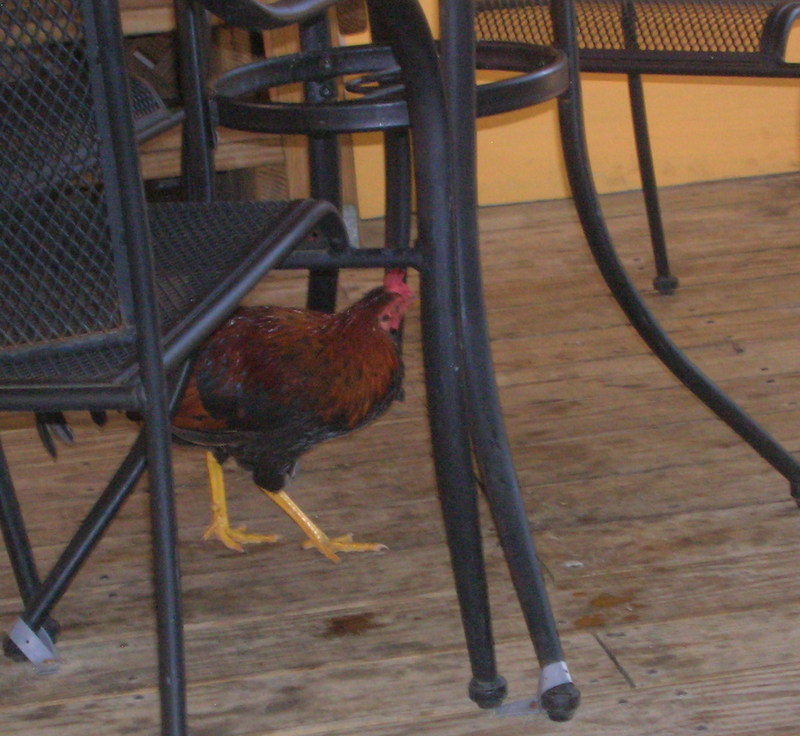
Rooster under the table at Zaco’s Tacos where dg drank mojitos in the afternoon.
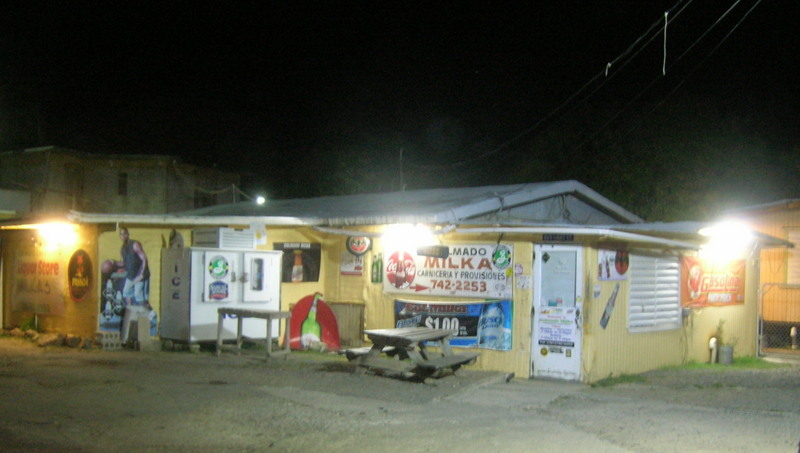
Milka’s, one of the island grocery stores, also liquor store and valuable source of Häagen Dazs ice cream after mojitos at Dinghy Dock.

A sign of the times.
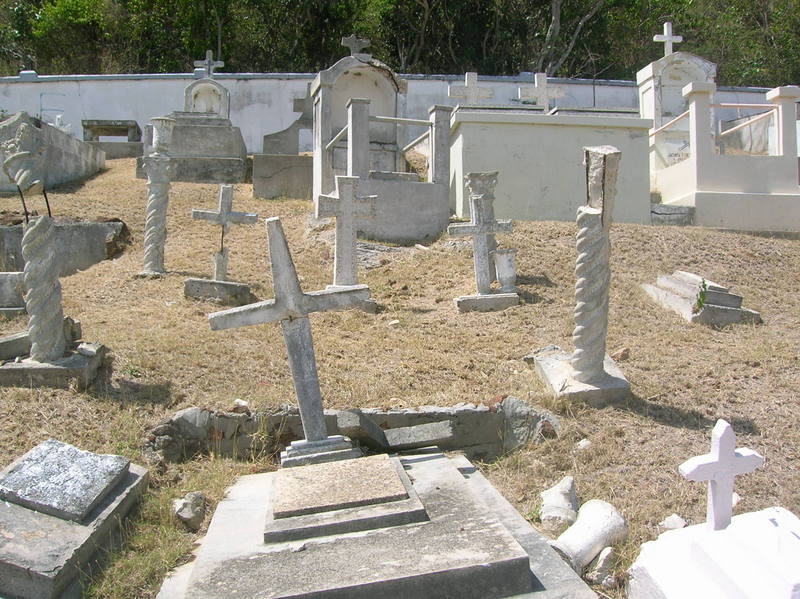
The old San Idelfonso graveyard, still in use. San Ildefonso was the original island village, but the American Navy moved all the people out to Dewey when the island became a Naval training station.
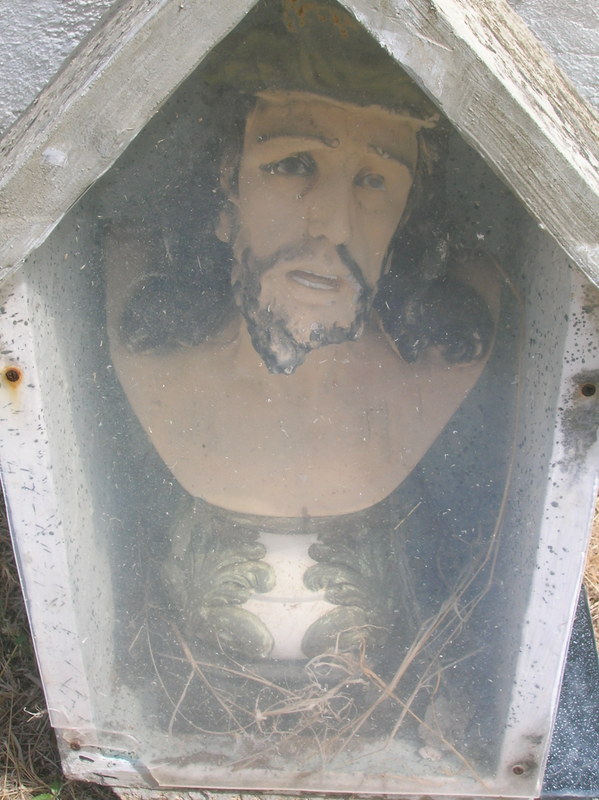
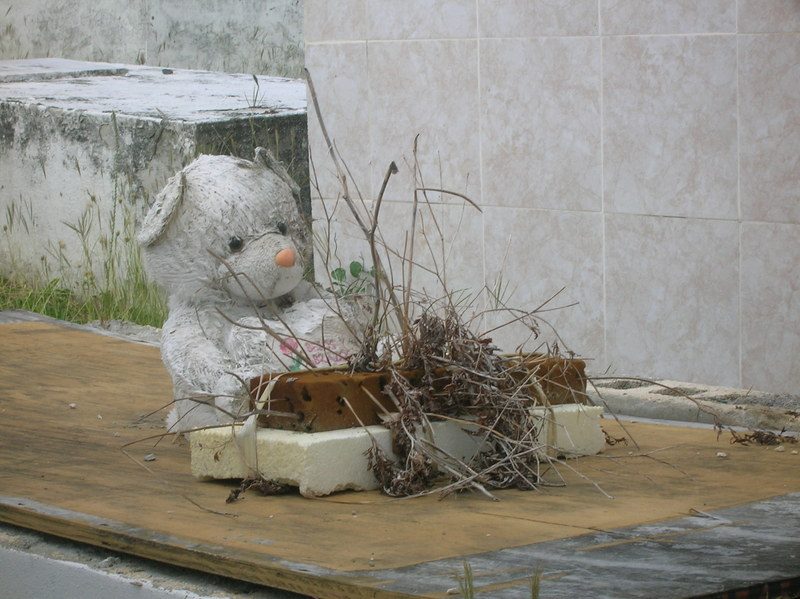

Canal that runs from one side of the island to the other. This is looking east toward the ferry dock and the town square.

The canal photo above was taken from the bridge. See the dinghies docked just left of centre at the bottom? That’s a restaurant called Dinghy Dock. Dinner starts at 6pm. You eat right next to the water and huge tarpon gather under floodlights in case someone throws them food. At 7pm Bulldog bats started swooping over the water, fishing with their feet. Amazing to watch. Good place to sit and drink mojitos before wandering home to bed.

Dinghy Dock Restaurant
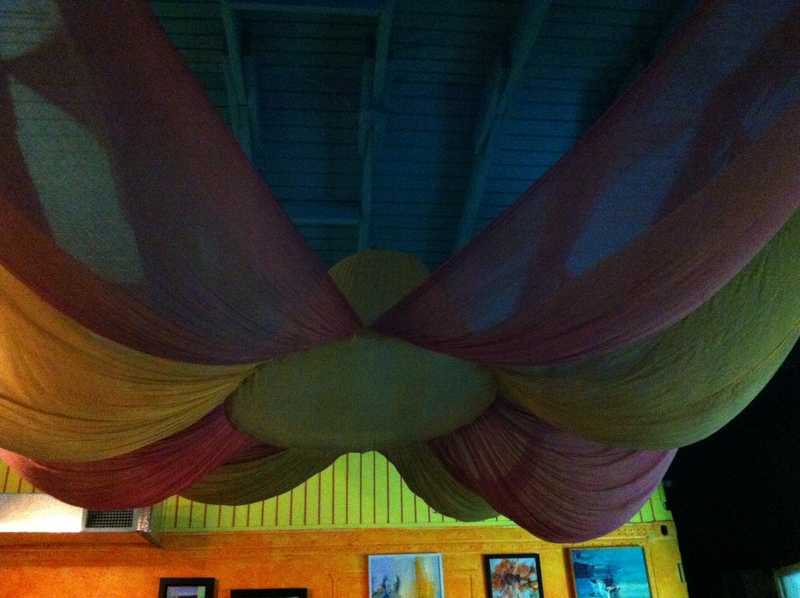
El Eden Restaurant.
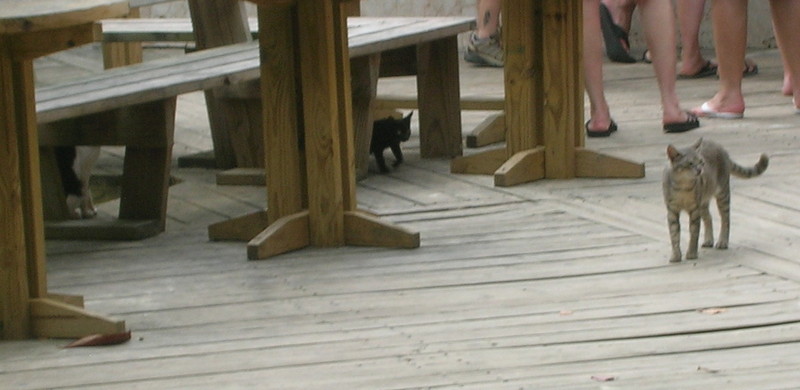
Feral cats at the food kiosks at Flamenco Beach. There is a sign at the entrance to the beach that reads NO PETS. But there are chickens and cats all over the place.
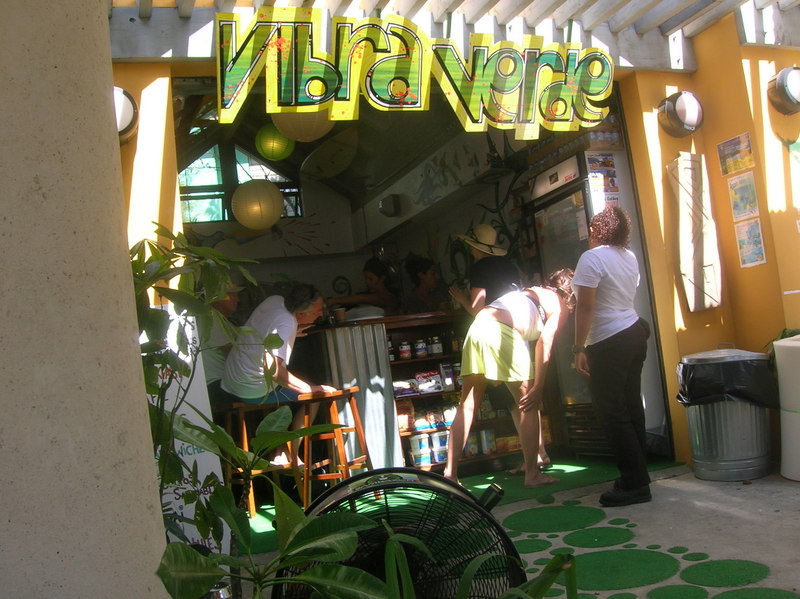
Great breakfast and lunch. The owner has a friendly dog, too. One morning when dg was missing his dog, the restaurant dog came and lay down on his foot.
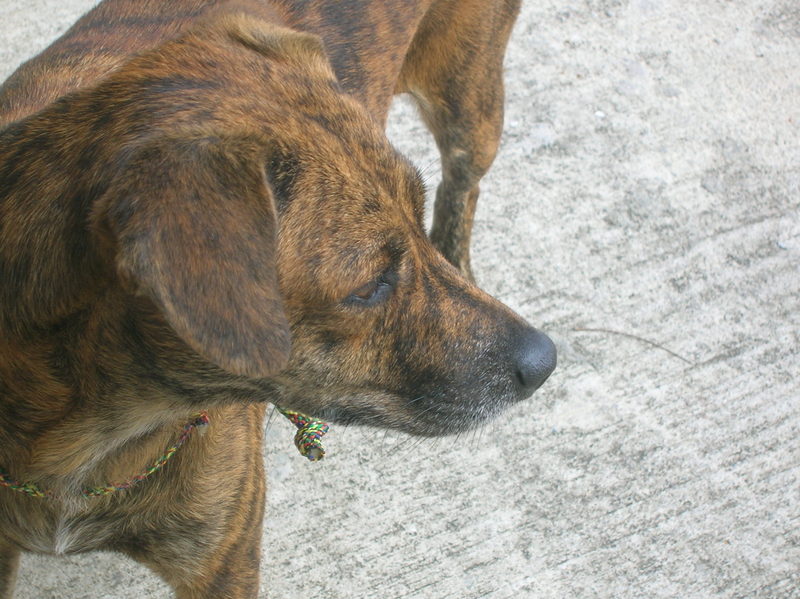
Vibra Verde dog, a friend to authors and a shrewd manuscript critic.
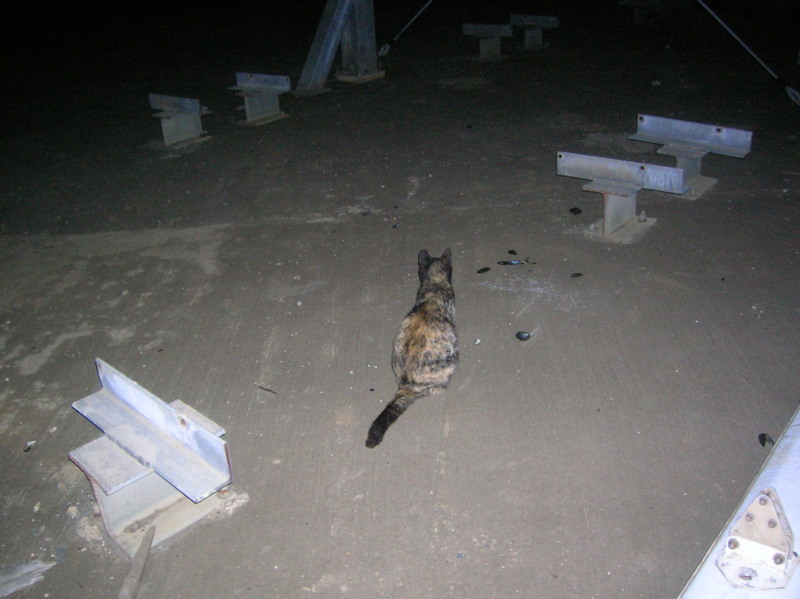
A vicious wild cat, ready to pounce and viciously maul something, viciously.
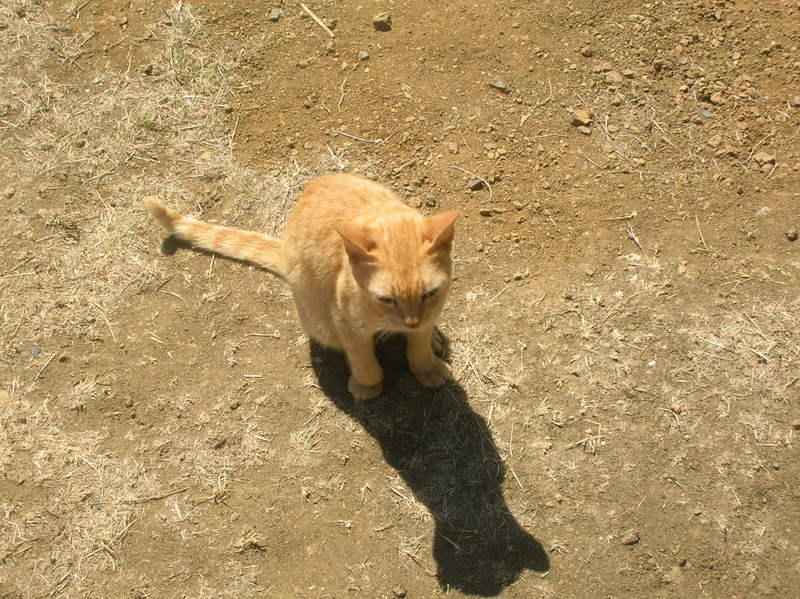
Another extremely vicious cat. This one rubbed up against dg’s legs and dg briefly thought about bringing it home in his luggage.
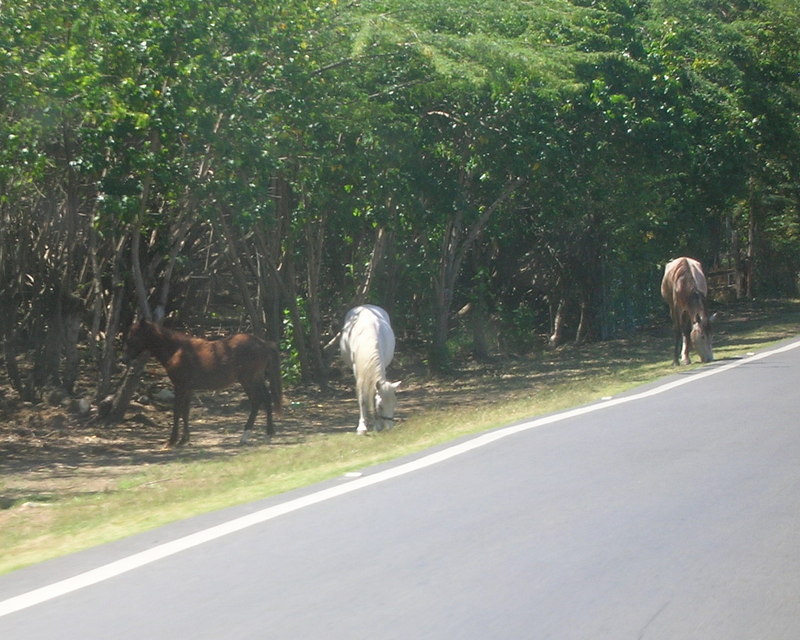
Road side horses. Moderately vicious.

Dewey from Resaca Mountain.

Tamarindo Beach

Land crab
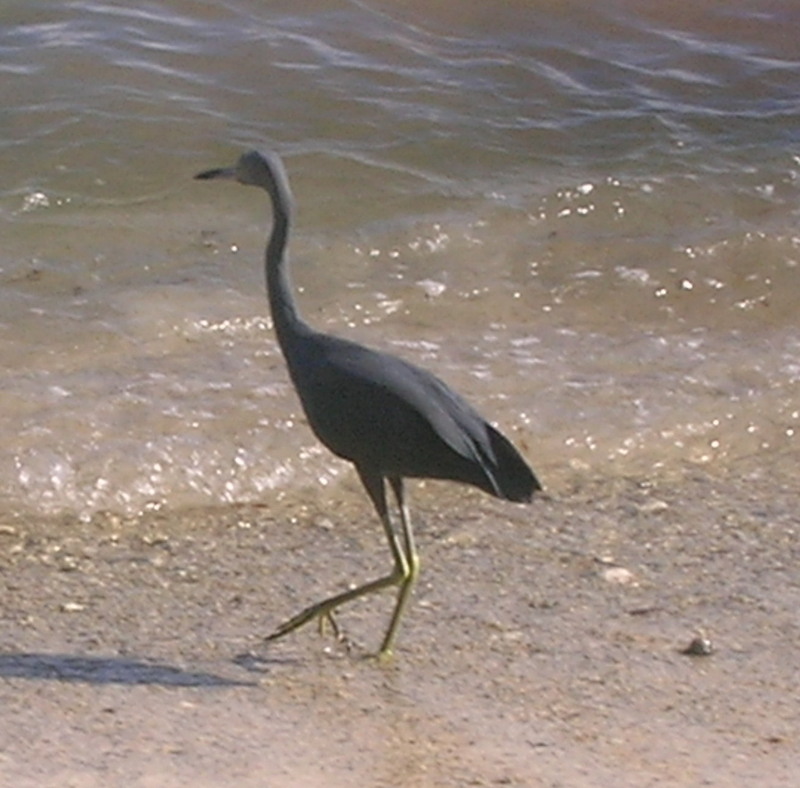
Heron
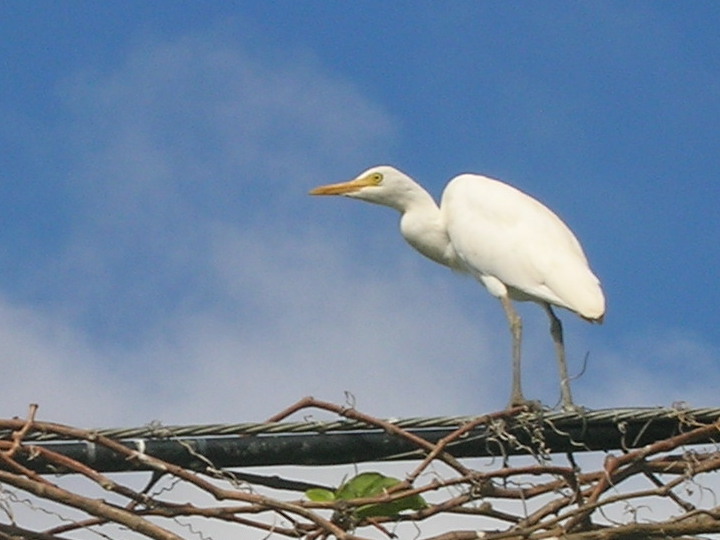
Egret
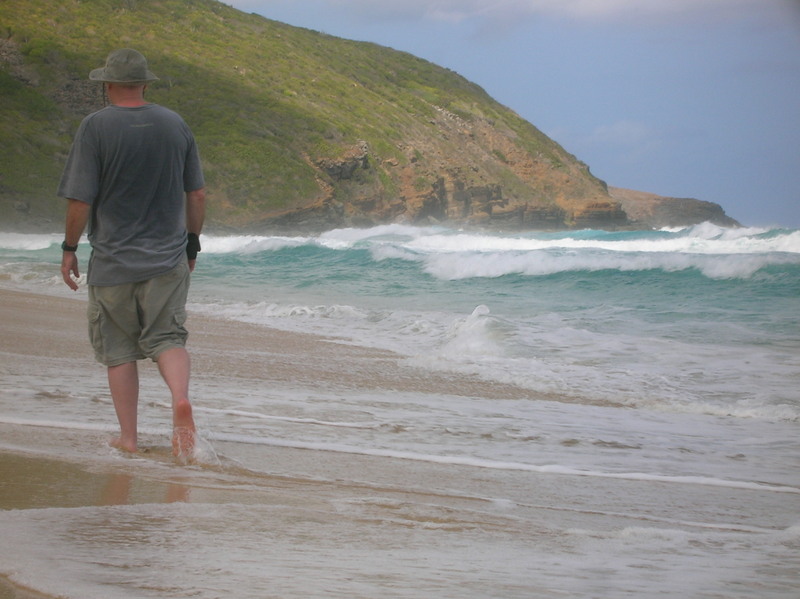
DG, thinking about mojitos, Resaca Beach. Wearing his ultra-cool Lake George Arts Project Bands ‘n Beans t-shirt. Shorts by Ralph Lauren (purchased economically at the Lake George outlet store). Watch, a Casio Illuminator. Note the vast crowds on this extremely crowded beach.
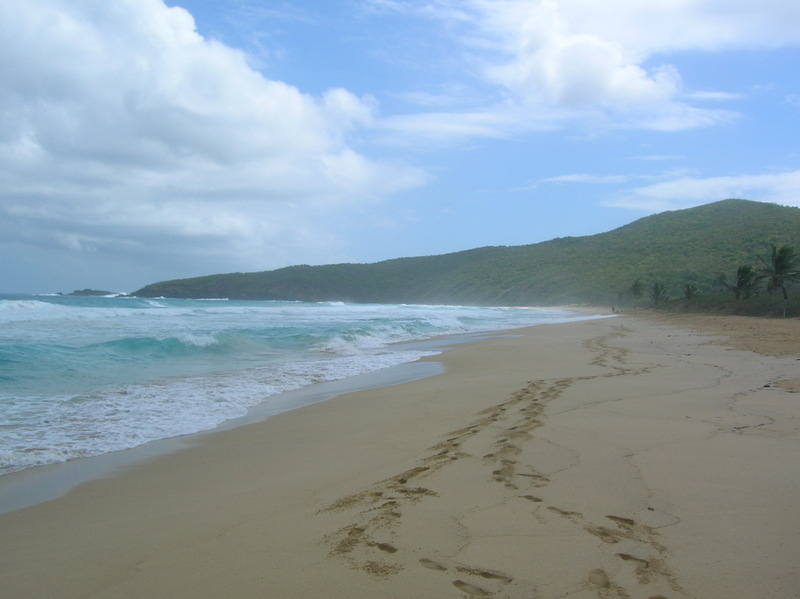
Our tracks. Resaca Beach. This place should be avoided because of the crowds.
—Photos by dg and mf




































